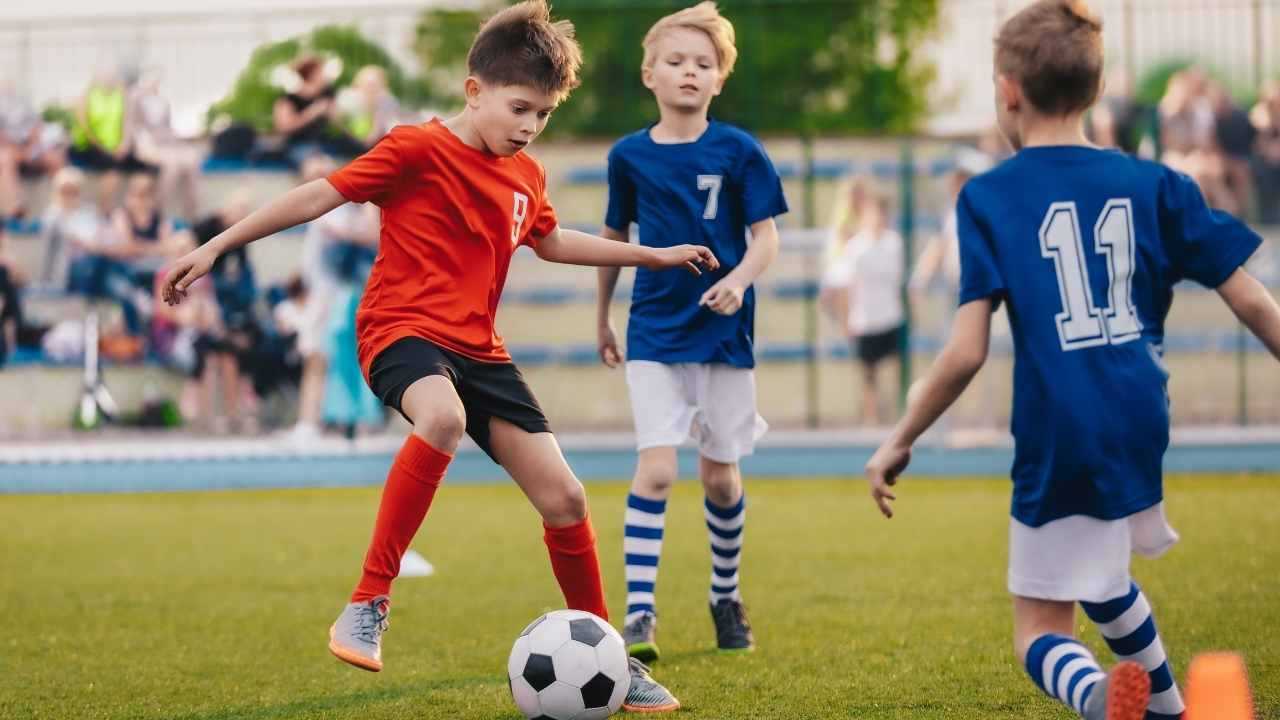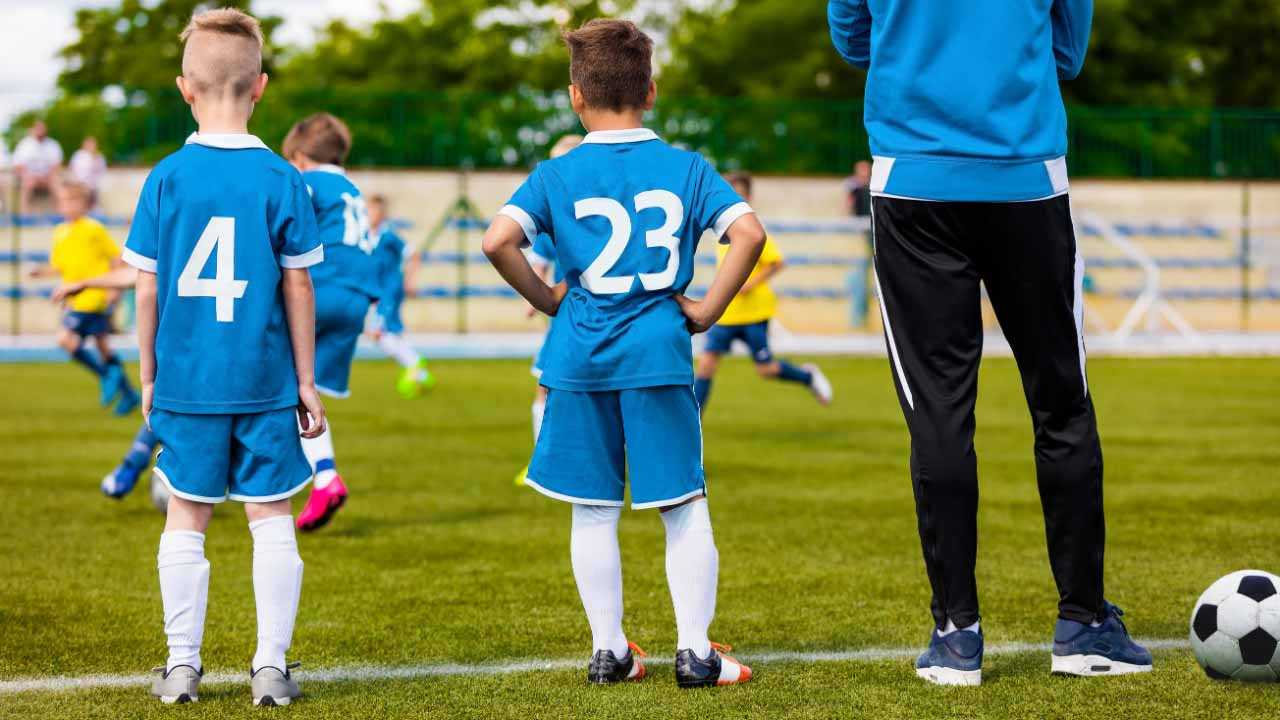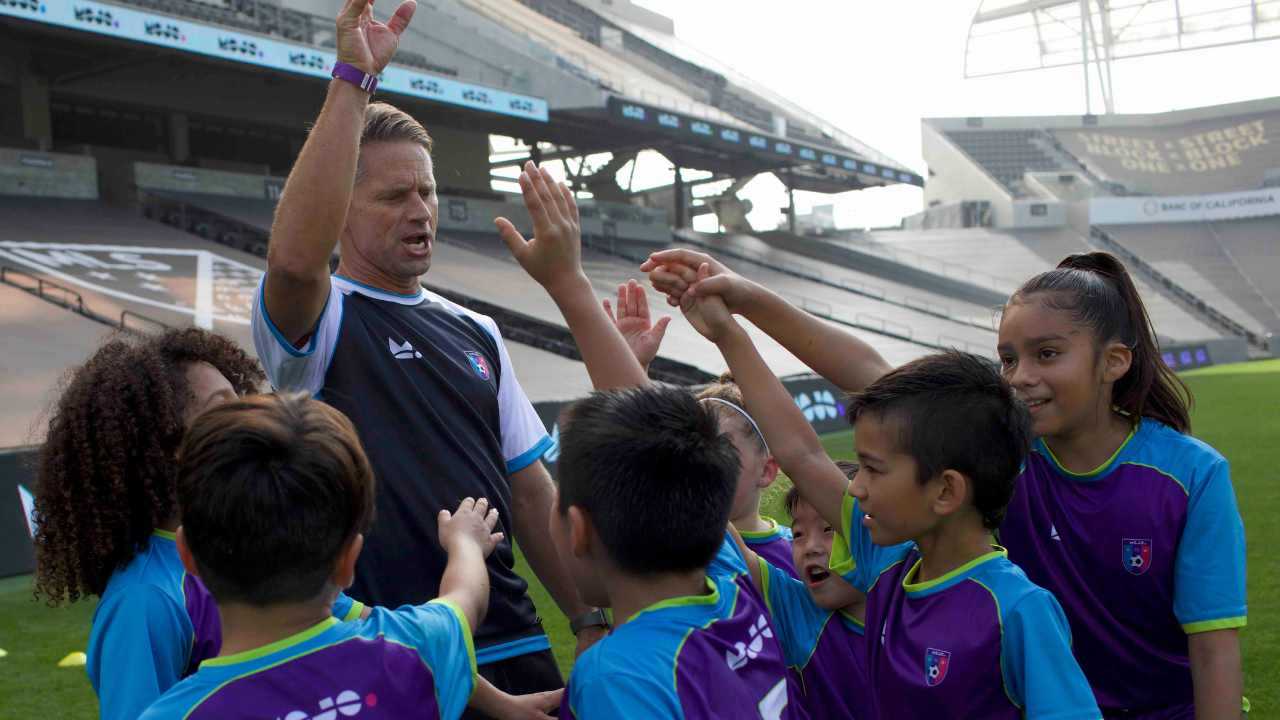Are Your Soccer Players Rocks or Trees?
How to understand, and work with, the motivational orientation of young soccer players
Jenny Etnier, PhD
| 6 min read

Canva
Everyone — even the youngest soccer players — has a motivational orientation that drives who they are and how they play on the field. Some are rocks. Some are trees.
Dr. Jenny Etnier, of the University of North Carolina, Greensboro, explains.
The athletes you are working with will have their own motivational orientation such that each athlete lies somewhere along the continuum from the rock to the tree.
“Rocks” attribute the outcomes of their performance to unchangeable characteristics. They attribute their successes to their high level of talent and ability and their failures to a lack of talent and ability. Rocks will also attribute failures to things out of their control that they believe restrict their ability to be successful, like the officiating or not feeling well.
“Trees” attribute the outcomes of their performance to things that can change and are within their control. They judge that their successes are due to their strong work ethic and high levels of effort and that their failures are due to a lack of work prior to a competition and too little effort during a competition.
How to tell a rock from a tree
If your athletes experience a loss, ask them what caused the loss. You can learn a lot about their orientation from their answers.
If they indicate that the loss was because of a lack of ability on their part, they may have a rock orientation. If they go further to say that the competition was better and will always be better, they definitely have a rock orientation.
On the other hand, if they indicate that the loss was because they were not adequately prepared to compete or didn’t give enough effort, they are demonstrating a tree orientation.
If they suggest that their competition was better than they were on that day, they have an orientation that falls somewhere between a rock and a tree — they recognize that ability and talent are part of the equation but also acknowledge that these are not permanent characteristics and that on another day they may be successful.
What a rock says and does
As a real example, watching a soccer practice the other day, I quickly identified a young athlete (an 11-year-old boy) with a rock orientation. The athletes had the opportunity to take shots on their coach, who was playing in the goal. Some of the athletes were successful, but the coach was able to save the vast majority of the shots. The first time this particular boy shot and missed, he shouted, “That wasn’t fair. My foot slipped.” When he shot again and the coach made the save, his reaction was, “Why are you trying harder against me than for everybody else?”
Do you see why this is evidence of a rock orientation? In both cases, the athlete attributed the miss to something outside of himself. By doing so, he didn’t have to accept responsibility for being a poor shooter on that day. Neither did he identify the actual reasons for the poor execution, so he didn’t recognize that there are ways to improve. The boy was doing everything in his power to protect his strong sense of his own ability and was not willing to be accountable for poorly executed shots.
How motivational orientation plays out on the field
It is important that we learn to recognize the two extreme orientations because the consequences of these mindsets are impactful.
If athletes have a rock approach and are successful, then everything is fine because these successes contribute to the athletes’ strong belief in their own ability and talent. But, if they have a rock approach and are not successful on a regular basis, their confidence can begin to erode because they interpret that these unsuccessful outcomes are due to a lack of talent. A series of losses can dramatically undermine rock athletes’ confidence, which can then lead to a downward spiral.
Those with the tree approach are much more protected against the ups and downs of sports competitions. Tree athletes attribute their success to hard work and effort, which encourages more of the same. Tree athletes attribute their lack of success to not working hard enough or to needing to find a new strategy or tactic. If tree athletes want to be successful, they know that they need to work harder, give more effort in practices and competition, and identify strategies that will help them be effective.
Coaching rocks into trees
Clearly, as a coach, it is better to be working with a group of athletes who are trees rather than rocks.
Although your athletes will come to you with an orientation that they have developed over time and that is somewhat stable, you can help athletes who have a rock approach move toward being more tree-like. To do this, create a climate in practices and competitions that reinforces tree-like thinking and discourages rock-like thinking by focusing your attention and reinforcement on your athletes’ hard work, effort, persistence and improvement.
Think about the long-term impact this climate will have on your athletes. If you get them to work hard, give high levels of effort, persist in the face of failure, and improve, the extent to which they will improve as a group over the course of a season or year will be remarkable.
Related articles
The Science of Winning (It’s Not What You Think)
How to Measure Success as a Coach
This TED Talk Will Change How You Coach
Dr. Jenny Etnier is the Julia Taylor Morton Distinguished Professor in the Department of Kinesiology at the University of North Carolina at Greensboro, where her research focuses on the cognitive benefits of physical activity. She is the author of Bring Your “A” Game: A Young Athlete’s Guide to Mental Toughness and Coaching for the Love of the Game: A Practical Guide for Working with Young Athletes, from which this is article adapted. A longtime youth soccer coach, Dr. Etnier is a fierce advocate for positive coaching and play, and is co-chair of MOJO’s Academic and Scientific Advisory Board.




